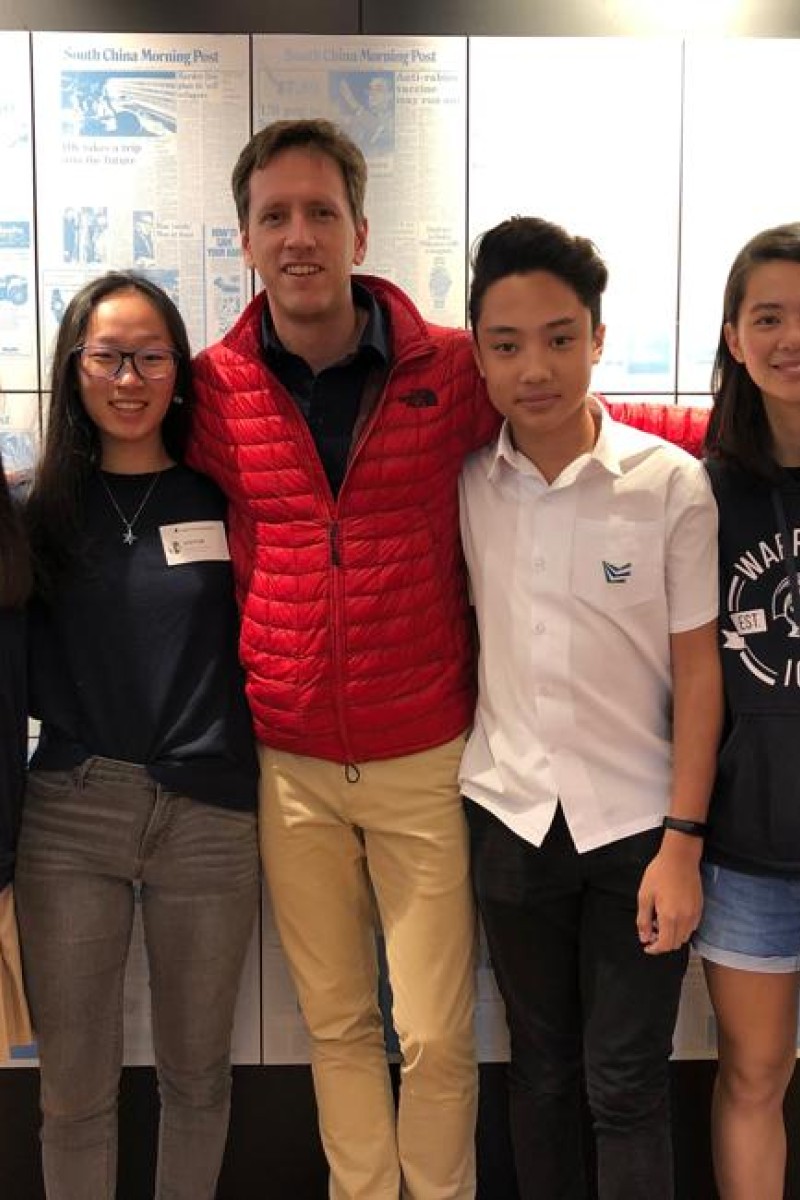
Documentary photographer on working with Nelson Mandela, and the advice Madiba once gave him on making a difference
We speak to the photographer who documented the life of a modern icon
 Willman (centre) with (from left) Rachel Tsang, Cindy Yang, Zachary Perez-Jones and Charlotte Fong.
Willman (centre) with (from left) Rachel Tsang, Cindy Yang, Zachary Perez-Jones and Charlotte Fong. Matthew Willman has had a career most photographers can only aspire to achieve. In 2003, he was commissioned to document the life and times of Nelson Mandela – a dream come true for any photographer, but even more so for Willman, who had spent years trying to meet the late Nobel laureate.
Through his work with Mandela, Willman played a key role in capturing South Africa’s transition post apartheid (racial segregation) to democracy in the 1990s – one of the most important events of the past century.
Willman now works as a documentary photographer for organisations such as the World Health Organisation and Oxfam International. Last month, he visited Hong Kong to unveil his latest work as part of a campaign for rhino protection, and Young Post took the opportunity to ask him about his extraordinary career.
100 facts about Nelson Mandela
“Having a vision and setting no boundaries on my dreams was critical to my success,” he said. “To quote Nelson Mandela, ‘it always seems impossible until it’s done’.”
Willman comes from a very academic background, and his parents didn’t react very well to his decision to pursue photography. But Willman was undeterred, and it wasn’t just his desire to meet Mandela that spurred him on; he knew that as a white man in South Africa, he had a certain privilege that he could use to shed light on issues like poverty, racism, and gender inequality.
“The greatest people in history were the dreamers and idealists. It was their dreams that gave them a life worth living,” he said.
At times, Willman went to extremes to achieve his goal. Once, when he was just 18, he hid inside the England football team’s changing rooms for two hours to meet then-captain David Beckham.
“I wasn’t the least bit interested in David Beckham,” he joked. “But I knew he was meeting Mr Mandela the following day. I begged him to take me with him, but sadly, he could not.”
Luckily, Willman’s determination paid off, when at the age of 23 his application to work for the Nelson Mandela Foundation – “I sent so many letters to them” – was finally accepted.
Throughout his career as a documentary photographer, Willman has met people with world views that are vastly different to his own. But while he doesn’t necessarily agree with their opinions, he listens respectfully and makes sure to capture them honestly on camera.
“Fear prevents dialogue and progress,” he said. “And the solution to fear is education. That’s why I do all this charity work.” Recently, Willman set up the Matthew Willman Arts Trust, a charitable organisation that supports young South African artists.
“It came out of a necessity as opposed to a dream,” he admitted, explaining how he had asked Mandela what he – as a middle-class white man – could do for future generations of South Africans.
Willman recalled Mandela telling him: “If you want to be relevant, serve.”